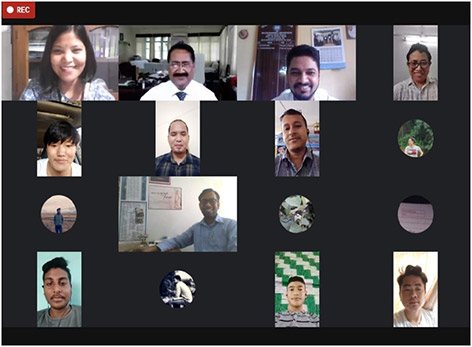 RONO HILLS, Jul 4: The NSS cell of Rajiv Gandhi University (RGU) here organized an online workshop for NSS volunteers on ‘swachhta and jalshakti’ on Saturday, in collaboration with the union HRD ministry’s Mahatma Gandhi National Council of Rural Education.
RONO HILLS, Jul 4: The NSS cell of Rajiv Gandhi University (RGU) here organized an online workshop for NSS volunteers on ‘swachhta and jalshakti’ on Saturday, in collaboration with the union HRD ministry’s Mahatma Gandhi National Council of Rural Education.
The programme was aimed at introducing “aspects of swachhta and jalshakti campus, and to enable higher educational institutions to work with the people of rural and urban India in identifying development challenges and evolving appropriate solutions for accelerating sustainable sanitation and water management,” the university’s NSS coordinator, Dr Anil Mili said.
“It also aims to create a virtuous cycle between society and an inclusive academic system by providing knowledge and practices for emerging professions,” he added.
RGU Pro-VC Amitava Mitra spoke on sustainable development goals and highlighted three key points, namely, clean and green environment, energy conservation, and water conservation.
Earlier, in his inaugural speech, RGU VC, Prof Saket Kushwaha stressed on “creation of teams and standard operating procedures that can fix responsibility on the persons, including NSS volunteers, and stress on the processes of waste management and water conservation in our campus.”
The VC also spoke about collaborating and engaging with the community and the government “for reducing carbon footprints for clean and green environment.”
Social Work Department Head (in-charge), Dr Kaushalendra Pratap Singh emphasized on “making the ‘swachh campus’ initiative possible through a systematic approach by including different stakeholders, keeping students, especially NSS volunteers.”
Resource person John Gangmei spoke on the forming a ‘swachhta and jalshakti’ group, comprising five groups: greenery group, water management group, energy conservation group, liquid and solid waste management group, and sanitation and hygiene group.
Social Work Department Assistant Professor, Dr Ravi Ranjan Kumar also spoke.


